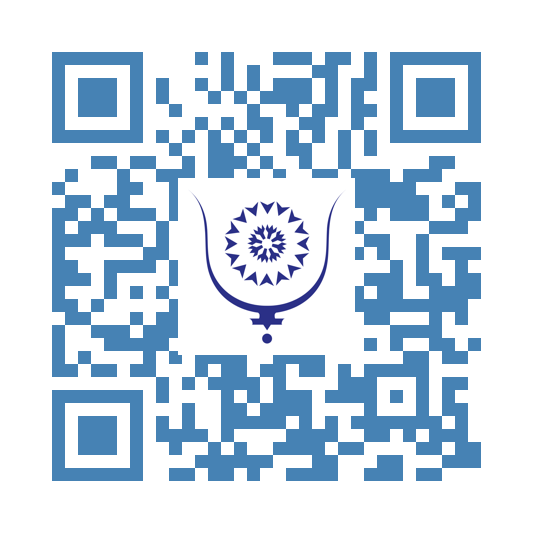6th African Crosscountry Championships, Hammamet Tunisia 25th Feb 2024 4185
Part 2 Team and mixed relay results
Bip Name Nat. Time Points
10 km men
1. Kenya 15
1. 37 VINCENT KIBET Langat KEN 00:28:31,28 1
2. 36 NAIBEI KIPLIMO Mayabei KEN 00:28:40,27 2
5. 41 VINCENT Kimaiyo KEN 00:29:04,10 5
7. 40 BRIAN KIPTOO Bushendich KEN 00:29:14,23 7
2. Ethiopia 27
3. 13 GEMECHU DIDA Diriba ETH 00:28:57,23 3
6. 15 ADISU NEGASH Wake ETH 00:29:12,34 6
8. 12 DINKALEM AYELE Adane ETH 00:29:15,07 8
10. 16 ENYEW NIGAT Tamen ETH 00:29:30,25 10
3. Uganda 46
4. 116 CHEBET Abel UGA 00:29:01,81 4
11. 121 KIPROTICH Levi UGA 00:29:33,88 11
12. 118 MUTAI Ezekiel UGA 00:29:47,20 12
19. 119 CHEPTOEK Elijah UGA 00:30:40,12 19
4. Morocco 73
14. 79 TORISS Hassan MAR 00:30:03,19 14
18. 77 AKKAOUI Mustapha MAR 00:30:32,35 18
20. 78 OUTADHA Hicham MAR 00:30:46,54 20
21. 76 OUTALHA Mohcine MAR 00:30:47,42 21
5. Algeria 85
16. 4 BENKERDAGH Youcef ALG 00:30:10,08 16
22. 2 EL HANNACHI Nabil ALG 00:30:54,00 22
23. 6 BOUCHICHA Hichem ALG 00:31:01,00 23
24. 5 ADOUCHE Youcef ALG 00:31:03,39 24
6. Tunisia 111
15. 101 JHINAOUI Mohamed Amine TUN 00:30:09,64 15
31. 105 ASSADI Makrem TUN 00:32:46,16 31
32. 103 SLIMENI Oussama TUN 00:33:20,45 32
33. 104 SOUISSI Nassim TUN 00:34:05,97 33
xxxxxxxxxxxxxxxxxxxxxxxxxxx
10km wemen
1. Kenya 13
1. 45 CHEPNGENO Cintia KEN 00:32:31,04 1
2. 48 NYAMBURA Virginia KEN 00:32:33,45 2
4. 49 MONGARE Gladys Kwamboka KEN 00:33:10,18 4
6. 50 CHEBET Caren KEN 00:33:39,84 6
2. Ethiopia 28
3. 19 AZIMERAW Asires Degitu ETH 00:33:03,95 3
5. 20 DESSIE Genaneh Anchinalu ETH 00:33:25,87 5
9. 21 SEWAGEGN Gelaw Yalga ETH 00:34:06,21 9
11. 128 AZALE Fantaye Belayneh ETH 00:35:08,01 11
3. Morocco 60
13. 84 BOUAGGAD Hanane MAR 00:35:41,14 13
14. 82 QALLOUJ Hanane MAR 00:35:58,78 14
16. 86 KAHHAZ Kaoutar MAR 00:36:28,76 16
17. 87 AAFIR Fatima MAR 00:36:37,80 17
xxxxxxxxxxxxxxxxxxxxxxxxxxx
8km U20 Male
1. Kenya 10
1. 61 KIPNGETICH Gideon KEN 00:23:16,34 1
2. 65 RUTO Joash Kiprotich KEN 00:23:17,31 2
3. 60 KIPROTICH Titus KEN 00:23:18,02 3
4. 63 MAYWA Simon KEN 00:23:21,96 4
2. Ethiopia 29
5. 35 HAGOS EYOBE Gared ETH 00:23:24,85 5
7. 33 ABDISA FAYISA Gutama ETH 00:23:35,98 7
8. 32 SEMACHW SEWNET Worku ETH 00:23:46,85 8
9. 30 SEYOUM BEHARU Regasa ETH 00:24:03,43 9
3. Morocco 57
12. 93 ERRADOUANI Oussama MAR 00:24:24,53 12
14. 95 AAOURDOU Ilyas MAR 00:24:30,05 14
15. 97 EL MOBARAKY Mohamed MAR 00:25:18,51 15
16. 96 AACHOUR Abdelwahed MAR 00:25:29,73 16
4. Libye 95
22. 122 BEN SALAH Muad LBA 00:29:42,87 22
23. 123 ABOURAS Asil Amer Mabrouk LBA 00:29:55,78 23
24. 124 HIBU Abdoussalam LBA 00:31:12,70 24
26. 129 MOHAMED RADDOU Mustapha LBA 00:32:42,61 26
xxxxxxxxxxxxxxxxxxxxxxxxxxxxxxxxxxx
6km U20 girls
1. Ethiopia 10
1. 24 DIRIBA ROBE Dida ETH 00:20:59,33 1
2. 26 ADEMAS YENENESH Shimket ETH 00:21:00,18 2
3. 28 DAGNAW TINEBEB Asres ETH 00:21:00,56 3
4. 27 YADETI MEKEDES Alemeshete ETH 00:21:02,16 4
2. Kenya 32
6. 56 CHEPKOECH Judy KEN 00:21:03,68 6
7. 54 JEPNGETICH Marion KEN 00:21:05,03 7
9. 57 WAMBUI Lucy Nduta KEN 00:21:09,09 9
10. 58 CHEPKEMOI Sharon KEN 00:21:11,62 10
3. Morocco 58
13. 90 IBN ABDEL MATEY Housna MAR 00:22:04,35 13
14. 92 EL BOUZI Saida MAR 00:22:23,40 14
15. 88 BALI Khadouj MAR 00:22:23,98 15
16. 91 IBN ABDEL MATEY Hassana MAR 00:22:28,69 16
xxxxxxxxxxxxxxxxxxxxxxxxxxxxxxx
Mixed relay
Rang Nom Prénom Nat. Temps
Relais Mixte
1. EDWIN KIPRONO , NSIZA WINFRED Mutai Victor, Miriam Cherip Kenya 00:23:29,13
2. URGESA TEDDESE LEMI, SHANQO BURGUDA ADUNA Embye Adehena Kasaye, Danbobi Dahdi Dube Éthiopie 00:23:46,41
3. RIZQY HAFID, IKRAM OUAZIZ Tindoufl Mohamed, Farkoussi Kawtar Maroc 00:23:49,57
4. RIADH CHENINI, RIHAB DHARI Abdessalem Ayouni, Marwa Bouzayani Tunisie 00:24:55,05



